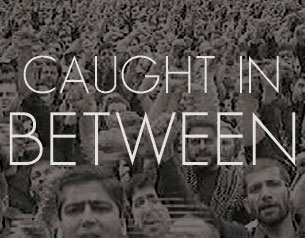Caught in Between
With Israel refusing to rule out a ground invasion, South Lebanon is once again in a state of turmoil. There, the wounds of twenty-two years of Israeli occupation are still fresh.
 With Israel refusing to rule out a ground invasion, South Lebanon is once again in a state of turmoil. There, the wounds of twenty-two years of Israeli occupation are still fresh. Isolated from the rest of the country, the population was forced to choose between two rival militias: the SLA, Israel's Lebanese allies, or the newly emerging Hezbollah. When Israel withdrew in 2000, its SLA supporters found themselves vilified as collaborators. This moving documentary follows Maha and Pierre, who sided with the SLA, and DeGaulle and Ali, members of Hezbollah. Their stories provide an insight into the political forces shaping Lebanon today.
With Israel refusing to rule out a ground invasion, South Lebanon is once again in a state of turmoil. There, the wounds of twenty-two years of Israeli occupation are still fresh. Isolated from the rest of the country, the population was forced to choose between two rival militias: the SLA, Israel's Lebanese allies, or the newly emerging Hezbollah. When Israel withdrew in 2000, its SLA supporters found themselves vilified as collaborators. This moving documentary follows Maha and Pierre, who sided with the SLA, and DeGaulle and Ali, members of Hezbollah. Their stories provide an insight into the political forces shaping Lebanon today.
Armed fighters dance in the streets with grandmothers. Grown men cry hysterically as they kiss the ground while crowds storm the jails setting all the prisoners free. It's Hezbollah's finest hour. After 22 years of occupation, Israel is withdrawing from South Lebanon. But in houses across the region, some families are preparing for the worst. "We didn't know if Hezbollah would come and kill us", recalls Maha, the wife of an SLA fighter. "Fear pushed us to take flight."
She has good reason to be afraid. A month before the pullout, Said Hassan Nasrallah, Hezbollah's leader, warned: "Collaborators and traitors, when the enemy leaves, if you don't leave with them, we'll come after you with our guns." SLA members, trained and financed by Israel, are thought to be top of Hezbollah's hit list. Released prisoners, tortured by the SLA, are desperate for revenge.
But instead of killing them, Hezbollah issues strict orders for SLA fighters to be handed over to the Lebanese authorities. Most receive prison sentences of between one month and 15 years. "The entire world was stunned by the exemplary attitude of the Islamic resistance", boasts Nasrallah. However Hezbollah fighters, arrested and tortured by the SLA, felt their suffering was being ignored. "I spent eight years in complete isolation. The Israeli collaborators have only been sentenced to one or two years", complains Ali.
Initially, more than 6,000 SLA members fled into Israel. Many of these fighters, like Maha's husband, joined up because it was the only job available. "He preserved his land, his family and his dignity and we call him a traitor", she complains bitterly. He is now serving an eight-month prison sentence after the family returned to Lebanon. Maha herself feels constantly under suspicion. "It's better not to go out and not to visit anybody. Every little word can be turned against you."
After the euphoria of liberation died down, hopes for a better future quickly faded away. Investment promised by the international community never materialised and revenue provided by the Israelis disappeared. Even some Hezbollah fighters, like Ali and DeGaulle, feel abandoned. "We spent months without anyone showing any interest towards us, without housing, without work."
Ironically, this economic decline has consolidated Hezbollah position. More and more people are dependent on its social programmes and it has assumed the role of the Lebanese State. But at any moment, the situation along the border could explode again. As Maha states: "Does anyone know what the future will hold?"
FULL SYNOPSIS
